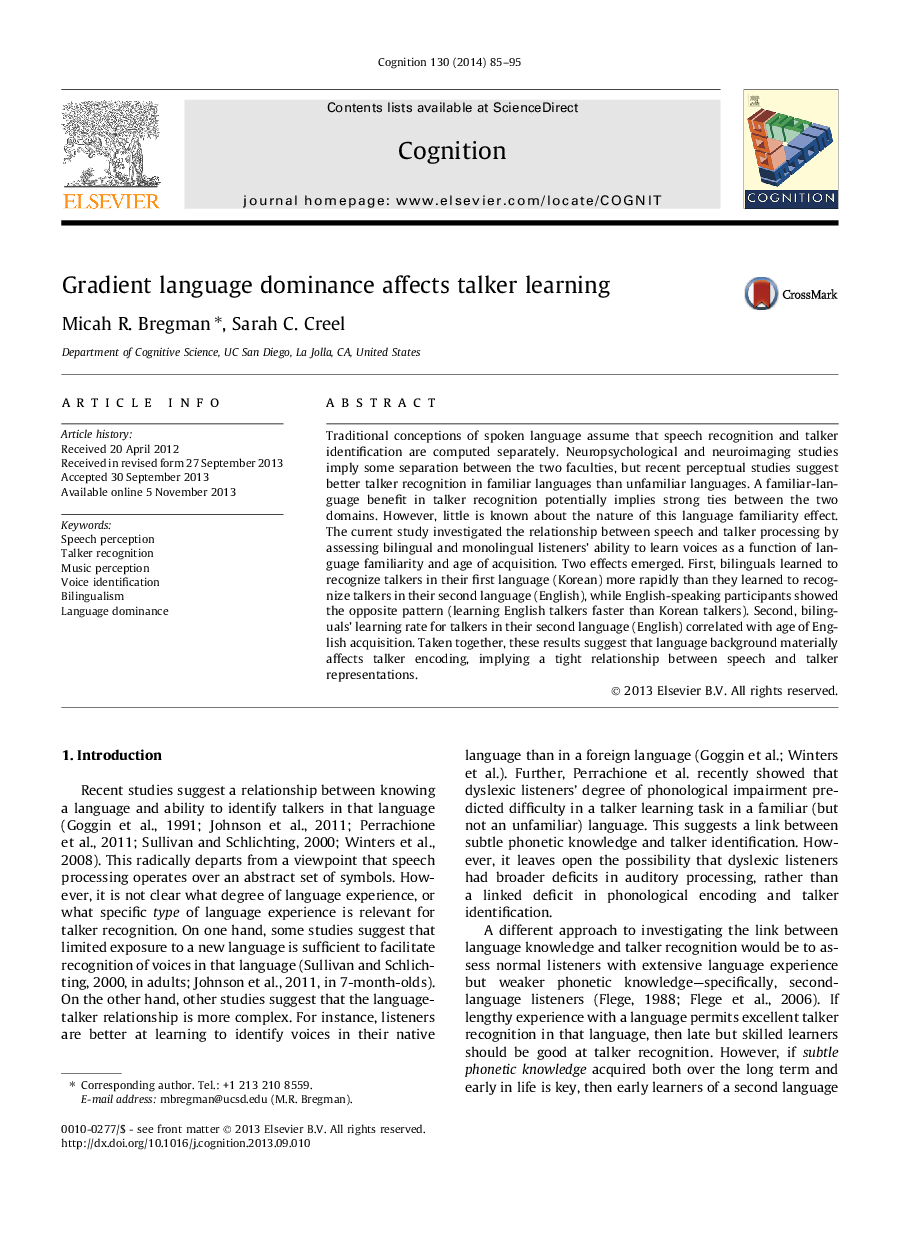| Article ID | Journal | Published Year | Pages | File Type |
|---|---|---|---|---|
| 10457767 | Cognition | 2014 | 11 Pages |
Abstract
Traditional conceptions of spoken language assume that speech recognition and talker identification are computed separately. Neuropsychological and neuroimaging studies imply some separation between the two faculties, but recent perceptual studies suggest better talker recognition in familiar languages than unfamiliar languages. A familiar-language benefit in talker recognition potentially implies strong ties between the two domains. However, little is known about the nature of this language familiarity effect. The current study investigated the relationship between speech and talker processing by assessing bilingual and monolingual listeners' ability to learn voices as a function of language familiarity and age of acquisition. Two effects emerged. First, bilinguals learned to recognize talkers in their first language (Korean) more rapidly than they learned to recognize talkers in their second language (English), while English-speaking participants showed the opposite pattern (learning English talkers faster than Korean talkers). Second, bilinguals' learning rate for talkers in their second language (English) correlated with age of English acquisition. Taken together, these results suggest that language background materially affects talker encoding, implying a tight relationship between speech and talker representations.
Related Topics
Life Sciences
Neuroscience
Cognitive Neuroscience
Authors
Micah R. Bregman, Sarah C. Creel,
